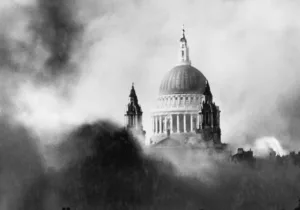Is the spiritual fountain of American democracy running dry?
My Muslim friend Shadi Hamid at Brookings Institution has a savvy essay on ostensibly post-Christian America destructively rechanneling religious passions into politics. He notes:
If secularists hoped that declining religiosity would make for more rational politics, drained of faith’s inflaming passions, they are likely disappointed. As Christianity’s hold, in particular, has weakened, ideological intensity and fragmentation have risen.
And:
If matters of good and evil are not to be resolved by an omniscient God in the future, then Americans will judge and render punishment now.
Needless to say, demands for complete justice in this world, humanly rather than divinely enacted, are dangerous, potentially lethal, and inevitably will be disappointed.
Hamid, who’s of Egyptian ancestry, warns:
Not so long ago, I could comfort American audiences with a contrast: Whereas in the Middle East, politics is war by other means—and sometimes is literal war—politics in America was less existentially fraught.
But increasingly less so. Hamid observes: “On the left, the ‘woke’ take religious notions such as original sin, atonement, ritual, and excommunication and repurpose them for secular ends.” And some on the right, as on January 6, invest faith in personality cult and conspiracism.
Responding to the “dangers of transforming mundane political debates into metaphysical questions,” Hamid says: “Political questions are not metaphysical; they are of this world and this world alone.”
From a Christian theological perspective, this assertion is not entirely accurate. Christianity and historically most of American spirituality have infused politics with moral purpose. Churches have taught that God ordained the state and other institutions of civil society that sustain any ordered human civilization. God summons us to work for justice in this world, “thy will be done,” but He warns us that we are sinful and fallible. Our labors and judgments about justice will always be flawed, and under His final judgment, rendered temporally or eternally.
Consequently, we are called to be modest and circumspect in our expectations about earthly justice and our claims to align ourselves with God’s will. And we are called to remember that, while the aspiration for human justice is divine, most details of politics and government rely on compromise, accommodation and prudence, not directly on dogmatic theology.
The American democratic project presupposes this perspective of fallen humanity striving to advance God’s Kingdom but wary of claims about completing it. Dogmatic and insistent political perfectionism more typically belongs to truly dangerous utopian ideologies that often culminate with totalitarianism and refuse to leave final judgments to God. Such ideologies typically reject God altogether and deify themselves.
Hamid appropriately quotes Catholic thinker and IRD co-founder Michael Novak in saying America itself is “almost a religion,” through its foundational creed of human equality and its catechizing succeeding waves of immigrants into this American faith, often received by new adherents “with the zeal of the converted.” Hamid says:
We are a nation of believers. If only Americans could begin believing in politics less fervently, realizing instead that life is elsewhere. But this would come at a cost—because to believe in politics also means believing we can, and probably should, be better.
There’s a key reference in Hamid’s essay approximately quoting another friend, political theorist Sam Goldman: “In any given society, there is a relatively constant and finite supply of religious conviction.” In the cascading fountain of American democracy, the Protestant denominations were the original springs of spiritual influence, although even at the height of revival active church members were always a minority. Catholics and Jews later joined the cascade, both receiving and contributing, still later joined by others.
At no point in American history were most people actively devout. (Church membership in the 19th century was lower than today and lower still in the 18th century.) But the American people mostly, consciously or not, sheltered under the spray of this spiritual fountain, which watered democracy while usually, if not always, displacing political extremisms that threatened democracy.
Historic denominationalism’s decline in favor of non-denominationalism or religious nonaffiliation, both of them focused on individual choice, and the latter often divorced from community and authority altogether, has reduced the spray of the original fountain. Now larger segments of public life are left to the aridity of political zealotry and its angry, urgent demands for eschatological completion.
As Hamid notes, America will survive if enough citizens continue to believe in its civic creed, which remains worthy, and “may be enough,” otherwise hope depends on prayer. Yes, it does. And may such prayers draw America’s religious institutions to renewed labors for our democracy and its creed.
Such labors should retap the fountain of American democracy into its original spiritual spring waters of faith and transcendence. Not everyone will directly connect. To channel both John Calvin and Sam Goldman, the sanctified saints in any society are always limited in number. But if the flow of the fountain is great enough, its refreshing strength can re-irrigate our republic for the benefit all.







 Live in the DC area? Sign-up for Providence's in-person events list!
Live in the DC area? Sign-up for Providence's in-person events list!